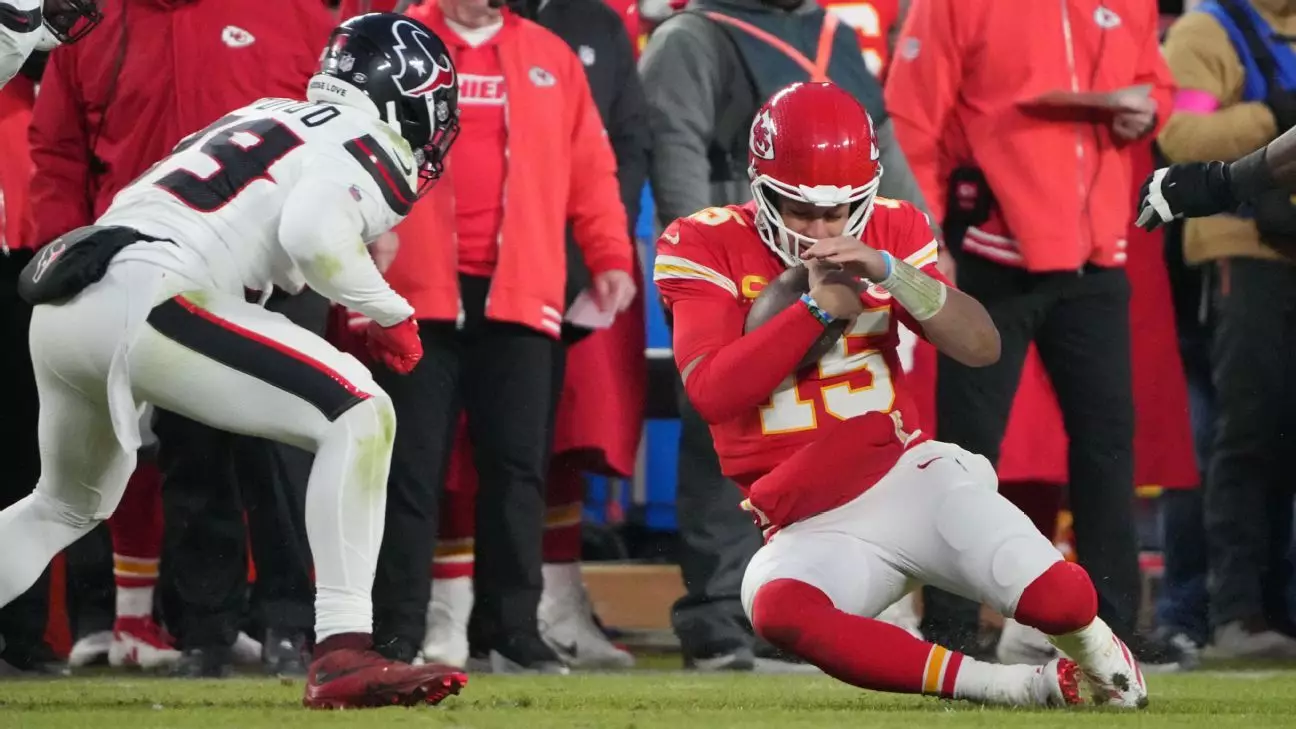The NFL has been the epicenter of controversy over officiating and game fairness, especially concerning the treatment of star quarterbacks such as Patrick Mahomes of the Kansas City Chiefs. As the 2024 season approaches, the league is expected to implement significant changes to its replay assist policies. Introduced in 2021, replay assist allows on-field officials to receive support from replay officials regarding specific calls during games. This expansion aims to mitigate player safety concerns and improve the accuracy of officiating, especially concerning critical plays that can decide the outcome of games.
Since its inception, replay assist has focused on clear situations, such as determining the spot of the ball or verifying penalties. However, its scope is set to grow, particularly regarding quarterback protection. The anticipated addition of plays involving quarterback slides reflects a growing recognition of the complexities involved when quarterbacks leave the pocket and attempt to evade defenders. Instances such as the recent AFC divisional playoff game, where Mahomes drew a controversial unnecessary roughness penalty while sliding to avoid tackles, highlight the challenges that officials face in making appropriate calls. In real-time, these situations are fraught with ambiguity, often leading to heated discussions among analysts and fans alike regarding the appropriateness of the penalties being called.
The reaction from analysts and viewers has been intense, as highlighted by ESPN commentator Troy Aikman’s remarks during the AFC playoff game. Aikman questioned whether the penalty imposed on Mahomes was warranted, arguing that a quarterback should not be allowed to navigate the field while simultaneously expecting protection from defenders. The discourse emphasizes a crucial aspect that NFL officials must grapple with: the line between quarterback safety and the inherent risk that comes with playing the position. According to Aikman, it is vital for the league to critically assess the standards that govern these calls. With replay assist potentially expanding to include more situational criteria, it could foster greater transparency and consistency in officiating.
The NFL’s competition committee plays a pivotal role in shaping the game, scrutinizing rules and policies throughout the offseason. With meetings scheduled around the league’s annual gathering, where proposed rule changes are debated and voted upon, it is evident that there is a strong push for the thoughtful inclusion of additional replay situations. By introducing clearer guidelines on handling quarterback slides and hits out of bounds, the NFL aims to strike a balance between preserving the integrity of the game while ensuring the safety of its most prominent players. The committee’s discussions could set a precedent for tackling ambiguous situations that plague officiating.
While player safety remains a concern, the players themselves have varying opinions on perceived officiating biases. For instance, Texans linebacker Will Anderson Jr. expressed frustration with how penalties seem to disproportionately affect defensive teams. Yet, Chiefs quarterback Mahomes defended the notion that his team benefits from preferential treatment during games. He acknowledged that referees strive to call the game as fairly as they can. This tension showcases the ongoing debate about whether star players receive undue advantages or whether the enforcement of rules simply highlights their unique positioning on the field.
The refinement of replay assist heralds a new era in the NFL, where the emphasis on clarity and fairness may redefine how the game is officiated. As discussions around these changes unfold, the ultimate goal of enhancing player safety while maintaining the competitive nature of football remains paramount. The key to resolving these controversies lies in establishing a clear framework that can be applied uniformly across games. As the NFL grapples with evolving dynamics, the focus will invariably be on balancing the interests of players, coaches, and fans as they seek to witness a fair and thrilling sport. Ultimately, the realignment of replay rules will not only shape the legacy of players like Mahomes but also influence the future of the league itself.


Leave a Reply